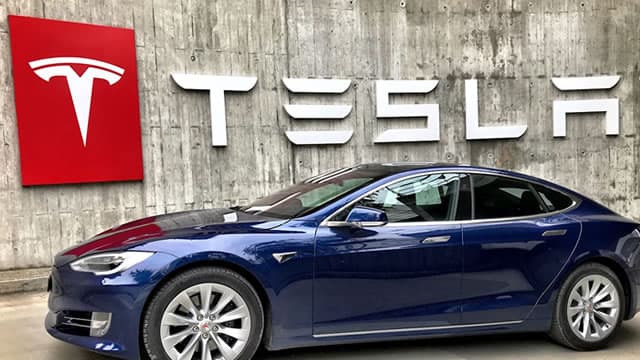Tesla's bumpy road: Where things stand for Elon Musk and company

Summary
Tesla has faced a turbulent first half of the year, primarily due to CEO Elon Musk's political tensions with the White House following his departure from an advisory role. This has led to public scrutiny and heated exchanges, impacting investor sentiment. The company also continues to battle production challenges, supply chain disruptions, and intensifying competition in the global EV market. Despite these headwinds, Tesla maintains a strong market position with upcoming product launches and autonomous driving advancements. Investors should monitor production, regulatory developments, competition, and Musk's public engagements for actionable insights.
Tesla's Bumpy Road: Where Things Stand for Elon Musk and Company
Tesla (NASDAQ: TSLA) has navigated a particularly turbulent first half of the year, marked by significant challenges that have tested both its operational resilience and its public image. At the heart of much of this volatility has been CEO Elon Musk, whose high-profile activities and outspoken nature have frequently drawn scrutiny and, at times, considerable backlash.
Political Tensions and Public Scrutiny
One of the most prominent sources of recent friction stems from Musk's past affiliation with the White House, particularly during his tenure as the unofficial 'head of DOGE' – a role that, while informal, placed him in close proximity to political power. Since his departure from this advisory capacity, Musk has found himself increasingly at odds with the current presidential administration. This ongoing political tension has manifested in a series of heated public exchanges, often playing out on social media platforms, which have contributed to a perception of instability surrounding Tesla's leadership.
These political skirmishes are not merely rhetorical; they carry tangible implications for Tesla. Regulatory scrutiny, potential shifts in government incentives for electric vehicles (EVs), and even public sentiment can be influenced by the perceived relationship between the company's leader and political figures. Investors are keenly watching how these dynamics might affect Tesla's ambitious expansion plans, particularly in areas requiring government cooperation or subsidies.
Production Challenges and Market Competition
Beyond the political arena, Tesla has also grappled with persistent production challenges. While the company has made strides in scaling up its manufacturing capabilities, supply chain disruptions, particularly concerning critical components like semiconductors, have continued to pose hurdles. These issues have, at times, led to production delays and impacted delivery schedules, creating uncertainty for customers and investors alike.
Compounding these internal challenges is the intensifying competition within the global EV market. Traditional automotive giants are rapidly accelerating their EV offerings, often leveraging their vast manufacturing infrastructure and established dealer networks. New EV startups are also emerging, bringing innovative designs and technologies to market. This heightened competition is putting pressure on Tesla's market share and profit margins, necessitating continuous innovation and cost efficiency.
Investor Sentiment and Stock Performance
The confluence of political controversies, production headwinds, and increased competition has undeniably impacted investor sentiment towards TSLA. After a period of meteoric growth, the stock has experienced significant volatility. While long-term bullish investors remain confident in Tesla's technological leadership and brand strength, short-term traders and more cautious investors are closely monitoring these developments.
Concerns about Musk's divided attention, given his involvement in multiple ventures beyond Tesla, also weigh on some investors' minds. The market seeks clear strategic direction and consistent execution, and any perceived distractions can lead to apprehension.
The Road Ahead: Opportunities and Risks
Despite the challenges, Tesla continues to hold a dominant position in the EV market, driven by its strong brand, advanced battery technology, and extensive Supercharger network. Upcoming product launches, such as the Cybertruck and potentially more affordable models, could reignite growth and expand its addressable market. Furthermore, advancements in autonomous driving technology remain a key differentiator and a significant long-term growth driver.
However, the risks are equally pronounced. Regulatory crackdowns, particularly concerning autonomous driving safety or environmental compliance, could impose significant costs. A sustained downturn in consumer spending or a global economic slowdown could also dampen demand for higher-priced EVs. Moreover, the ongoing political friction could escalate, potentially leading to adverse policy decisions that specifically target Tesla.
Investment Insights
For investors, the current landscape demands a nuanced approach. While Tesla's long-term growth potential in the EV and energy storage sectors remains compelling, the near-term volatility driven by external factors and internal challenges cannot be ignored. Investors should closely monitor:
- Production and Delivery Numbers: These remain key indicators of operational health.
- Regulatory Developments: Any new policies or investigations could significantly impact the company.
- Competitive Landscape: Observe how traditional automakers and new entrants are gaining traction.
- Elon Musk's Public Engagements: While difficult to quantify, his interactions can sway public and investor sentiment.
Diversification within the EV sector, rather than sole reliance on TSLA, might be a prudent strategy for some. For those committed to Tesla, understanding the interplay between its technological advancements, market execution, and the external political and economic environment will be crucial for navigating its bumpy road ahead.